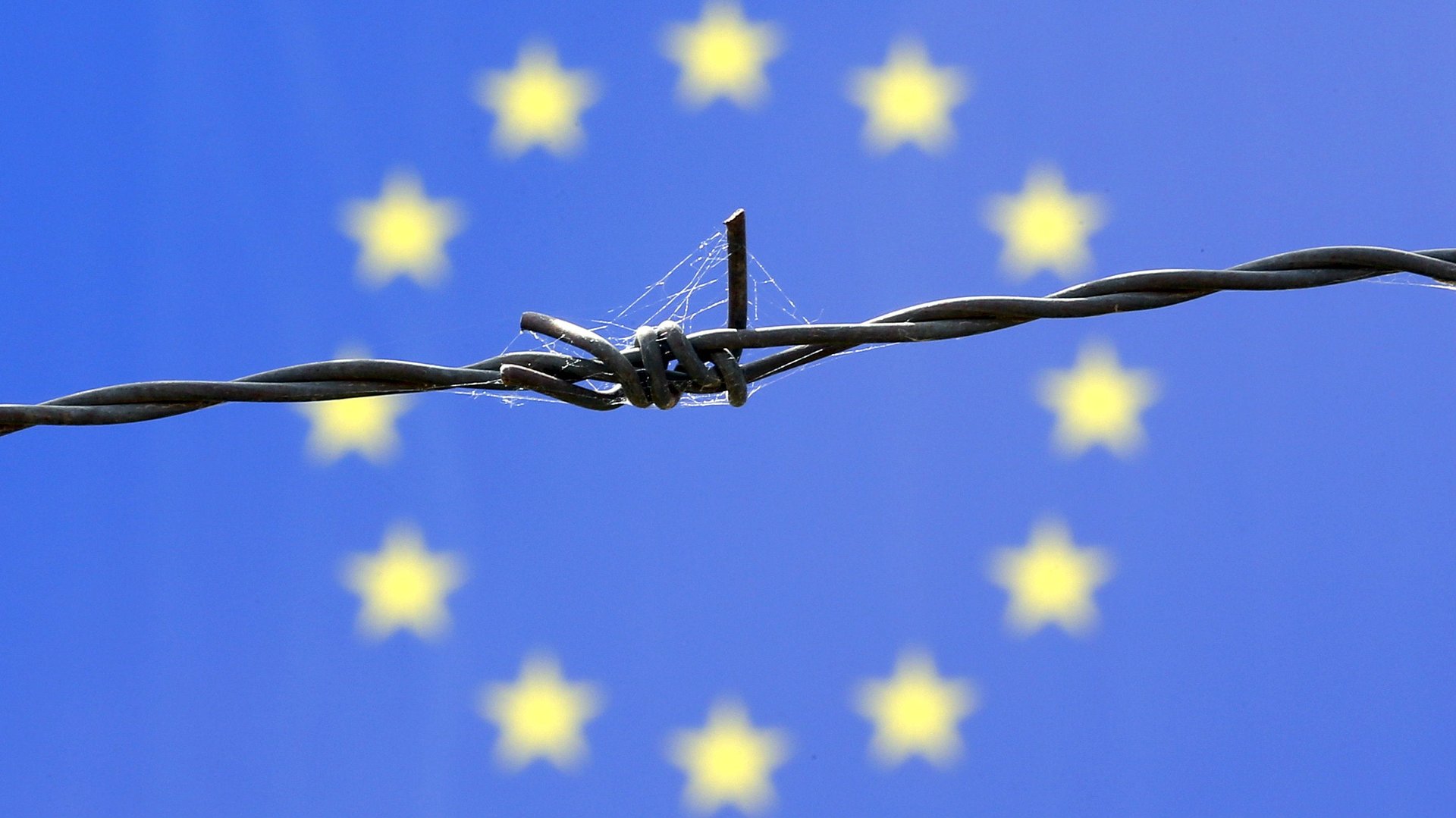Untangling 19,000 EU rules makes firms worry that entire businesses will become “illegal overnight”
Britain’s colossal task of severing ties with the European Union isn’t simply a matter of settling divorce proceedings on big ticket items, such as the Irish border and immigration rules—it involves wading through 19,000 EU rules and deciding what it will and won’t keep in UK law.


Britain’s colossal task of severing ties with the European Union isn’t simply a matter of settling divorce proceedings on big ticket items, such as the Irish border and immigration rules—it involves wading through 19,000 EU rules and deciding what it will and won’t keep in UK law.
It’s for this reason that businesses across Britain are worried about “entire business models becoming illegal overnight” when Brexit happens, according to a report by the Confederation of British Industry (CBI).
The CBI, a business lobby group for 190,000 companies in Britain, spoke to thousands of firms and dozens of trade associations across 23 industry and service sectors over a six month period. In the study released today (April 11), entitled “Smooth Operations,” it warned that “the job of untangling 40 years of economic and regulatory integration is a mammoth one and should not be underestimated.”
It added that “if negotiators get it wrong on rules, the consequences will be far-reaching. Firms voice concerns about court action, entire business models becoming illegal overnight, customer contracts in confusion, and a sudden drop off in access to our closest market for some of our leading industries.”
The CBI says, for example, in the pharmaceuticals industry, if the UK diverges from the Clinical Trials Regulation from the EU, “multiple trials will be needed for the same product in the UK and the EU. That would immediately split medicines into separate products, even if every other relevant regulation is aligned.” In other words, some products could be deemed illegal for sale in the EU if it doesn’t adhere to the bloc’s standards.
Since the 1972 European Communities Act, which brought Britain into the EU bloc, the UK has had to follow EU laws. The UK parliament’s lower house voted last year to revert the UK back to a system where EU law would no longer be relevant, in what is called the EU (Withdrawal) Bill, also known as the Great Repeal Bill. It’s “one of the largest legislative projects ever undertaken in the UK,” according to a report by the House of Commons library.
The UK government will need to finalize its negotiations with the EU as well as align the agreements with amendments made to the new bill. Regardless, the UK government will have to amend quite a few UK laws because a lot of them simply won’t work in the event of Brexit since they refer to EU institutions, according to a government white paper. Parliament will also have to vote on whether the bill, with the amendments, passes again.
However, CBI director-general Carolyn Fairbairn said in the report that, “put simply, for the majority of businesses, diverging from EU rules and regulations will make them less globally competitive, and so should only be done where the evidence is clear that the benefits outweigh the costs.”